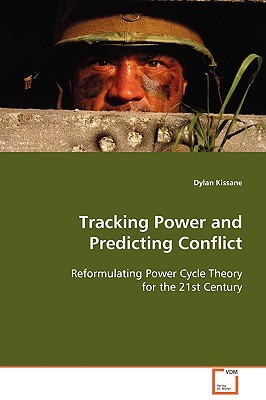
- We will send in 10–14 business days.
- Author: Dylan Kissane
- Publisher: VDM Verlag Dr. Mueller E.K.
- Year: 2008
- Pages: 116
- ISBN-10: 3639097041
- ISBN-13: 9783639097047
- Format: 15.2 x 22.9 x 0.6 cm, minkšti viršeliai
- Language: English
- SAVE -10% with code: EXTRA
Reviews
Description
Charles Doran and Wes Parsons' innovative power cycle methodology for measuring international power and explaining the onset of conflict spurred theorists to re-examine their assumptions about power. The world, however, has changed markedly in the decades since power cycle theory first emerged. The advent of globalisation, the emergence of powerful regional institutions and the transfer of state sovereignty to transnational non-state actors all suggest that power cycle theory and its twentieth-century assumptions are in need of reformulation. It is now time to embrace new measures of state power - including national innovative power and 'soft power' - and to recognise that military power is no longer superior to economic power. It is time, also, to recognise the growing power of non-state actors and to account for their power in the world of states. The reformulation of power cycle theory herein will be of interest not only to scholars and students of international relations but also the lay reader with a curiosity about the present and future of world politics.
EXTRA 10 % discount with code: EXTRA
The promotion ends in 21d.12:45:37
The discount code is valid when purchasing from 10 €. Discounts do not stack.
- Author: Dylan Kissane
- Publisher: VDM Verlag Dr. Mueller E.K.
- Year: 2008
- Pages: 116
- ISBN-10: 3639097041
- ISBN-13: 9783639097047
- Format: 15.2 x 22.9 x 0.6 cm, minkšti viršeliai
- Language: English English
Charles Doran and Wes Parsons' innovative power cycle methodology for measuring international power and explaining the onset of conflict spurred theorists to re-examine their assumptions about power. The world, however, has changed markedly in the decades since power cycle theory first emerged. The advent of globalisation, the emergence of powerful regional institutions and the transfer of state sovereignty to transnational non-state actors all suggest that power cycle theory and its twentieth-century assumptions are in need of reformulation. It is now time to embrace new measures of state power - including national innovative power and 'soft power' - and to recognise that military power is no longer superior to economic power. It is time, also, to recognise the growing power of non-state actors and to account for their power in the world of states. The reformulation of power cycle theory herein will be of interest not only to scholars and students of international relations but also the lay reader with a curiosity about the present and future of world politics.


Reviews